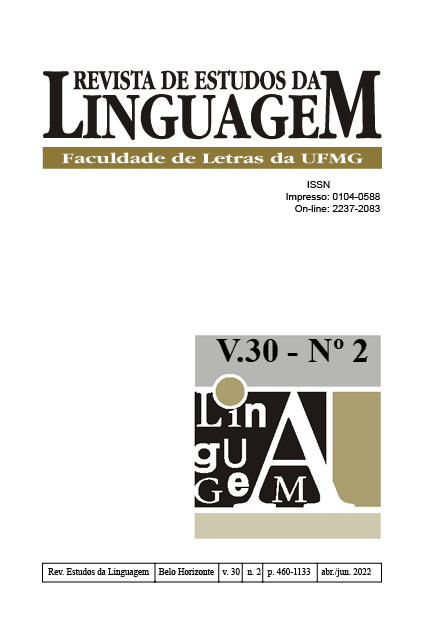O adjetivo no português brasileiro contemporâneo
DOI:
https://doi.org/10.17851/2237-2083.30.2.1056-1102Palabras clave:
adjetivo, construção linguística, Linguística Funcional Centrada no Uso, relação forma-funçãoResumen
Neste artigo, abordamos o adjetivo no português brasileiro contemporâneo. Temos como objetivo analisar essa categoria linguística em perspectiva construcional considerando aspectos morfológicos, sintáticos, semânticos, cognitivos e discursivopragmáticos envolvidos em seu uso. Nossa abordagem é de natureza qualitativoexplicativa com eventual suporte quantitativo. Na análise, utilizamos dados de fala e de escrita coletados em gêneros discursivos diversos, buscando captar a multifuncionalidade do adjetivo na interação comunicativa. Para embasar teórica e metodologicamente nosso estudo, recorremos à Linguística Funcional Centrada no Uso, corrente que articula, em suas investigações, pressupostos e conceitos operacionais da Linguística Funcional norte-americana e, principalmente, da Gramática de Construções. Dados do corpus mostram que a diversidade formal e funcional de construções adjetivas é motivada sobretudo por fatores cognitivos e discursivo-pragmáticos.





